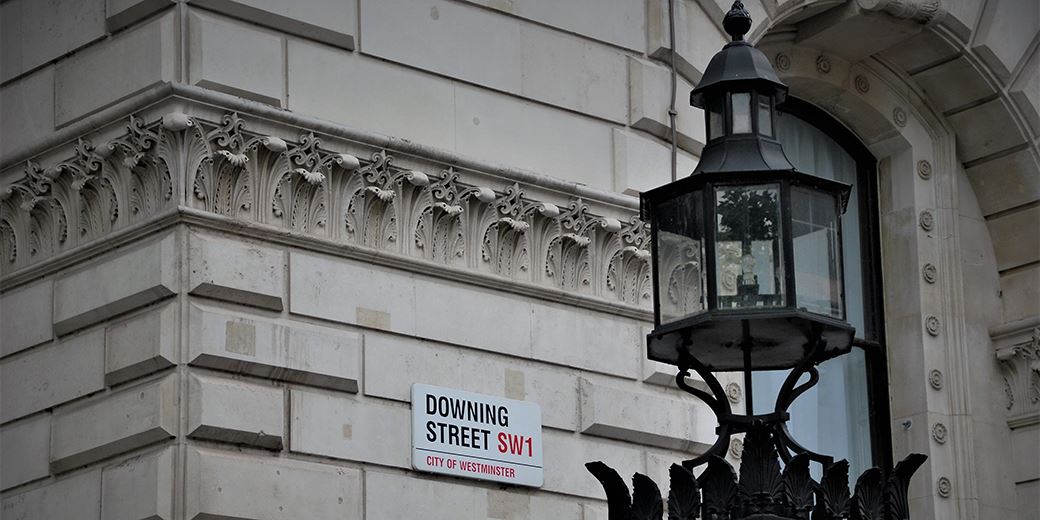There might be light at the end of the tunnel, but it ain’t here yet.
Blame policymakers, not LDIs, for the current crisis

Latest Newsletter
Value stance rewards managers with first AAA rating
The year comes to a close with a host of managers gaining their AAA wings.
Real Life: A cheaper, smarter way to fly business to the US
Companies are clamping down on travel costs. Here’s how to travel in comfort while keeping the expenses department happy.
Community
In its reply to the chairperson of the UK parliament’s Treasury committee, the Bank of England (BoE) painted its ‘emergency’ £65bn, 30-year gilt-buying programme as a necessary measure to address a serious and widespread threat to financial stability. A case of the cavalry riding to the rescue?
The threat came a few days earlier following chancellor Kwasi Kwarteng’s version of a ‘special operation’. He delivered a Budget dressed up as a ‘fiscal statement’. It amounted to a demand injection from unfunded tax cuts, inexplicably wrapped inside a supply-side growth mantra.
Coming after unfunded energy price caps and two years of yet-to-be-funded Covid support, the gilt and foreign exchange markets wretched violently. Sterling went lower against the US dollar than it has ever been. The gilt market had the worst day that any statistical risk model could anticipate.
Enter centre stage liability-driven investments (LDIs). A solution created by clever investment bankers and asset managers more than 20 years ago in response to the pension community’s twin challenges of asset-liability management and underfunded final salary schemes. In a nutshell: hedge your long-term liabilities through derivatives and use the cash to invest in markets to close the funding gap.
This worked fine until a collection of exceptional events triggered a severe market dislocation and large-scale collateral calls to support those supposedly risk-reducing derivatives. As the scale of collateral calls turned into behemoth gilt sales, the spectre of a deathly ‘self-reinforcing spiral’ forced the BoE to intervene.
As a proposer and manager of LDI strategies in those early days of their life, we packaged a sophisticated idea wrapped in state-of-the-art systems. It was a creative solution to a real need, so we and the industry sold a lot. By 2021, the Investment Association estimated that LDI notional contracts had reached £1.6tn – a nice little earner for the asset management industry, and a mainstream go-to solution for defined-benefit (DB) pension schemes.
How do I feel when I hear talk of war rooms and emergency intervention and mum and dad’s pension being at risk – the UK’s own Lehman Brothers moment?
Fund manager Terry Smith has described the asset-liability matching at the core of LDIs as a ‘misguided investment strategy’. Instead, he advocates that ‘pension funds should get back to investing in assets with the likely greatest return over the long term: equities’.
Unfortunately, this forgets that, despite the efforts of the investment consultant community to identify the optimal asset allocation and best investment managers, the traditional bond/equity approach had left many DB schemes underfunded and requiring top-ups from their sponsors. The rise of LDIs was in response to this reality.
The criticism also ignores the role LDIs played in protecting the solvency of DB schemes during the long years of unlimited quantitative easing and zero interest rates, which drove real yields to negative levels. Nor does the proposed solution recognise that of the 9.7 million people reliant on DB pensions, nearly all are in closed schemes and roughly half are already drawing a pension. For such fast-maturing schemes, the asset-liability mismatch risk should be lowered over time.
‘The traditional bond/equity approach had left many DB schemes underfunded and requiring top-ups from their sponsors. The rise of LDIs was in response to this reality’
The blame game is well under way in the media and among pundits, focusing on trustees, consultants and bankers. This is akin to attacking the builders of shoreline defences when they leak in the face of an extreme earthquake. Focusing on the fallout distracts attention from the fundamental cause of the tsunami – the competency of our policymakers.
Firstly, our central bank slammed the quantitative easing and zero-interest-rate accelerator pedal too hard for too long, like joyriders in a new Maserati. It ignored the massive build-up in liquidity and savings. Then Covid-19 provoked supply disruptions and gargantuan fiscal support programmes. Eventually, with the help of a war, the dam broke and inflation took off. The central banks were now caught with their trousers down, with interest rates well below an equilibrium level.
In the catch-up race that has followed, some central banks have been slower than others – the performance of the sterling before the chancellor’s mini-Budget would suggest that ours was not only behind the curve but also behind the pack. The BoE’s tardiness has already imposed the need for higher interest rates as the UK economy enters a recession.

Step forward the new chancellor. Kwarteng’s special fiscal operation, however well-meaning, could not have come at a worse time. All the market could see was unfunded fiscal stimuli poured onto unfunded fiscal fires. Even worse, it puts fiscal policy in direct conflict with monetary policy.
The subsequent two-day collapse in the gilt market that pushed LDIs into the limelight was the worst on record, forcing the BoE’s hand in the name of financial stability and, embarrassingly, compelling it to reverse its programme of belated quantitative tightening.
Until the mini-Budget announcement, LDI strategies had managed well the 2.5-percentage-point rise in long gilt yields in the year to date. They could not handle so well the unprecedented shock waves that followed the two-day 1.25-percentage-point jump in response to the mini-Budget.
Collateral waterfalls behind the derivatives embedded in LDI strategies were tested to the limit, generating intense conversations with plan sponsors over the viability of the hedges. Sell assets in fire sales, inject more cash from sponsors or allow hedges to be closed that would leave funds exposed to funding risk – these were the choices faced by trustees of the more exposed DB schemes.
There are lessons for trustees and their sponsors. They will not have enjoyed being at the mercy of the markets and will not want to be the weakest wildebeest at the back of the herd.
Leverage and the liquidity of collateral are the key areas of focus that trustees will be reviewing with their consultants and sponsors. Specifically, are funds using their leverage to overinvest in illiquid assets chasing the illiquidity premium; and is there enough governance and management flexibility behind LDIs given the daily collateral requirements, especially in the case of pooled funds?
Pressuring trustees to address the events in a way that leaves liabilities unhedged – in order to reduce liquidity risk from an unprecedented incident – is surely not a desirable outcome.
In any case, it would not address the key problem. This is less a pension fund liquidity crisis and more a crisis of confidence in policymakers and policy. Instead of asking whether we can trust pension fund trustees and their strategies, we should be challenging our policymakers.
The long hours and fraught meetings are not over for many trustees. The BoE’s emergency programme is due to end on 14 October. What then? Markets remain unconvinced that a return to responsible and competent economic and financial management by our policymakers is imminent.
Robert Kyprianou is a former CEO of Axa Framlington and deputy global CEO of Axa Investment Managers. He has worked in asset management and financial services for 45 years in multiple roles including as a CIO and a director on company boards.
Latest Newsletter
Amplify Issue 30: The fund groups topping the tree
We analyse which groups have had the biggest inflows and outflows in 2022, look at managers achieving their first AAA ratings, and hear from Rob Kyprianou on why regulation gets it back to front.
Amplify Issue 29: Red hot: 2022’s private market hiring spree
2022 has been a hot year for private markets, but are asset managers putting the brakes on their expansion efforts? Plus, we look at how the bear market has affected launches this year and look at how firms can better communicate their brand values.
Amplify Issue 28: Fill your ESG product gaps
We hear from fund buyers on what they’re looking for from an ESG fund, find out what Neuberger Berman is plotting in the alts world, and learn the winners of Citywire’s Gender Diversity Awards.
Community
